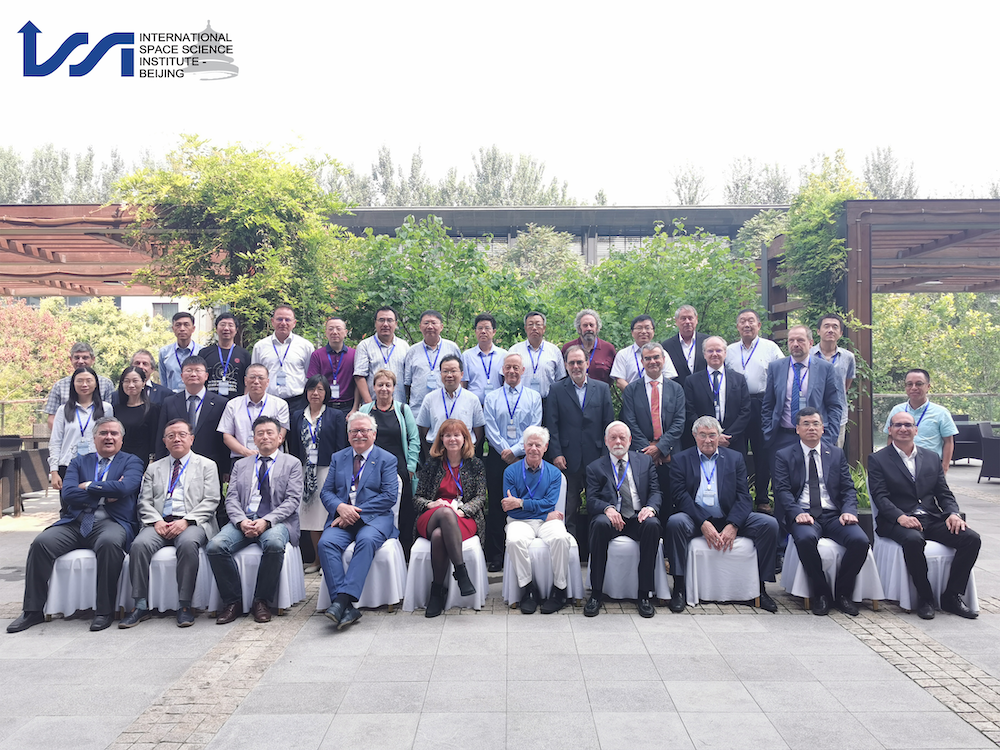In the first week of September, the joint event attracted numerous prominent international scientists and was convened by Ji Wu (NSSC, CAS, CN), Alvaro Gim nez (CSIC, Spain/ISSI-BJ), Chi Wang (NSSC, CAS, CN), and Maurizio Falanga (ISSI-BJ, CN). It was also attended by internationally recognized key scientists that in the last decades contributed to the space science research with pioneering achievements, as well as by ISSI-Bern representatives, such as ISSI former and current Executive Directors, Dr. Prof. Bonnet and Dr. Prof. Spohn respectively.

Group picture of the forum participants
Prominent researchers representing various space science discipline fields — space astronomy, solar physics, space physics, space and earth science, and planetary science — and engaged during two days, worked towards the encouraged discussion on space science frontiers and opportunities for the coming decade, selecting Beijing as a fertile ground for debates.
In fact, considering the increasing contribution of Chinese scientists to the space science research endeavored since 2011, the People’s Republic of China currently represents a very inspiring environment for international researchers and for multi-cultural scientific research. Furthermore, in recent years China has launched several spacecraft missions, such as DAMPE, QUESS, HXMT, and many new ones are under development, for example EP, ASO-S, and SMILE.
The forum participants — 20 international scientists together with 15 Chinese national experts — were warmly welcomed at the Swan Lakeview Hotel on the evening preceding the forum, which was formally opened by Prof. Chi Wang (NSSC, CAS) and Prof. Maurizio Falanga (ISSI-BJ Executive Director) in the morning of September 4, 2019. The first day featured a detailed account of the European (Prof. Hasinger, ESA), Japanese (Prof. Fujimoto, ISAS, JAXA), Russian (Prof. Zelenyi, IKI, RAS), and Chinese space science programs (Prof. Wang, NSSC, CAS), introduce by the presentation on the role of the National Academy of Sciences in the US space planning (Prof. Hartman, SSB, NAS). On the same day, the challenges in Space Astronomy and Fundamental Physics, Solar and Space Physics, as well as in Exoplanets were approached and elaborated over three sessions, all chaired by Prof. Gim nez (CSIC, Spain/ISSI-BJ).
As the second day started, the debates’ focus still concerned the challenges in the space science field, moving on to Planetary Science and Earth Space Sciences, which were then followed by comprehensive reports and summaries of the forum in order to identify the key scientific questions to be addressed in the following decade, thus sparking a round-table discussion.
As the output of this forum, an issue of TAIKONG, ISSI-BJ magazine, will be distributed to the science communities and space science institutions and will be made available on the ISSI-BJ website.
A brief forum report written by Prof. Wu and Prof. Gim nez is available on ISSI-BJ forum page.
---
For more information, please contact ISSI-BJ PR and Editorial Manager Laura Baldis: laura.baldis@issibj.ac.cn